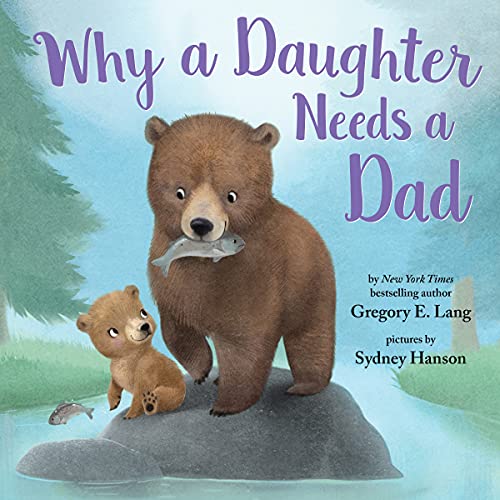Go offline with the Player FM app!
Ep 602: The Catharsis of Supporting Others with Tim Clark
Manage episode 449114264 series 3334692
If you weren’t learning how to carve intricate designs in sourdough bread in 2020, odds are, you might have been learning how to make pottery. And while this is true for today’s guest, Tim Clark, that wasn’t all. Tim also was learning how to make pottery and navigate the rest of life after a spontaneous tear of the retina left him half blind. There seems to be quite the thru line for many of us finding pottery as a therapeutic thing, but Tim has taken this one step farther, in starting the Blindfold Challenge to help raise awareness and frankly, a bit of money, for an amazing cause called the Fun Eye Fund.
In this episode, we talk all about that plus how Tim has found the Blindfold Challenge cathartic in ways he didn’t expect and his new endeavors into creating art that’s accessible not only for us sighted humans, but equally enjoyable for those in the blindness community.
Resources in this Episode:
Tim Clark on Instagram
The Fun Eye Fund
Love this podcast? Support an episode! Click here to learn more.
Follow The Maker's Playbook on Instagram @themakersplaybook
Have questions about the show or want to say Hi? Email us at: podcast (at) makers-playbook (dot) com
Chapters
1. Tim Clark (00:00:00)
2. Welcome to the Podcast (00:02:56)
3. Introducing the Half Blind Potter (00:03:01)
4. The Journey to Half Blindness (00:03:15)
5. Discovering Pottery During Recovery (00:07:06)
6. Learning and Mastering Pottery (00:11:46)
7. Raising Awareness and Community Support (00:18:45)
8. Navigating Life with Monocular Vision (00:23:41)
9. Blind Potter's Validation (00:43:48)
10. Networking in the Pottery Community (00:46:12)
11. The Blindfold Challenge: Raising Awareness (00:47:40)
12. The Fun Eye Fund: Supporting Prosthetic Eyes (00:56:45)
13. Pottery as Therapy (01:02:52)
14. Challenges and Triumphs in Pottery (01:05:00)
15. Final Thoughts and Future Plans (01:09:53)
166 episodes
Manage episode 449114264 series 3334692
If you weren’t learning how to carve intricate designs in sourdough bread in 2020, odds are, you might have been learning how to make pottery. And while this is true for today’s guest, Tim Clark, that wasn’t all. Tim also was learning how to make pottery and navigate the rest of life after a spontaneous tear of the retina left him half blind. There seems to be quite the thru line for many of us finding pottery as a therapeutic thing, but Tim has taken this one step farther, in starting the Blindfold Challenge to help raise awareness and frankly, a bit of money, for an amazing cause called the Fun Eye Fund.
In this episode, we talk all about that plus how Tim has found the Blindfold Challenge cathartic in ways he didn’t expect and his new endeavors into creating art that’s accessible not only for us sighted humans, but equally enjoyable for those in the blindness community.
Resources in this Episode:
Tim Clark on Instagram
The Fun Eye Fund
Love this podcast? Support an episode! Click here to learn more.
Follow The Maker's Playbook on Instagram @themakersplaybook
Have questions about the show or want to say Hi? Email us at: podcast (at) makers-playbook (dot) com
Chapters
1. Tim Clark (00:00:00)
2. Welcome to the Podcast (00:02:56)
3. Introducing the Half Blind Potter (00:03:01)
4. The Journey to Half Blindness (00:03:15)
5. Discovering Pottery During Recovery (00:07:06)
6. Learning and Mastering Pottery (00:11:46)
7. Raising Awareness and Community Support (00:18:45)
8. Navigating Life with Monocular Vision (00:23:41)
9. Blind Potter's Validation (00:43:48)
10. Networking in the Pottery Community (00:46:12)
11. The Blindfold Challenge: Raising Awareness (00:47:40)
12. The Fun Eye Fund: Supporting Prosthetic Eyes (00:56:45)
13. Pottery as Therapy (01:02:52)
14. Challenges and Triumphs in Pottery (01:05:00)
15. Final Thoughts and Future Plans (01:09:53)
166 episodes
Все серии
×1 Ep 622: When 90% of Your Revenue Comes from Pottery Alone with Heidi Fahrenbacher 1:26:04
1 Ep 621: Can You Make a Living from a $45 Mug? 26:57
1 Ep 620: Protecting Your Artistic Voice with Martha Grover 1:18:10
1 Ep 619: Building a Creative Practice Across Continents with Eva Champagne 1:13:38
1 Ep 618: A Journey to Gallery Ownership with AnnMarie Cooper of Good Earth Gallery 1:05:23
1 Ep 616: The Slow Growth Community Studio with Amy Roadman (Part 1) 48:24
1 Ep 615: The Importance of Mentorship with Lisa Orr 1:15:30
1 Ep 614: The Aligned Potter with Elizabeth Schlatter 1:06:41
1 Ep 613: Where Are They Now with Kara Leigh Ford 1:23:20
1 Ep 612: Being Your Own Boss with Amy Brummond of Pine Zen Potter 1:11:03
1 Ep 611: When Things Need to Change with Megan Sward 1:43:34
1 Ep 609: Where are They Now? - Restarting through Trauma with Sarah Wells Rolland 1:19:23
Welcome to Player FM!
Player FM is scanning the web for high-quality podcasts for you to enjoy right now. It's the best podcast app and works on Android, iPhone, and the web. Signup to sync subscriptions across devices.



































